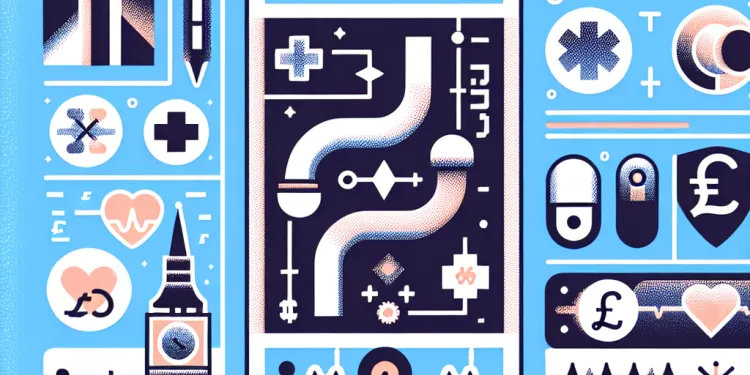
Find Help
More Items From Ergsy search
-
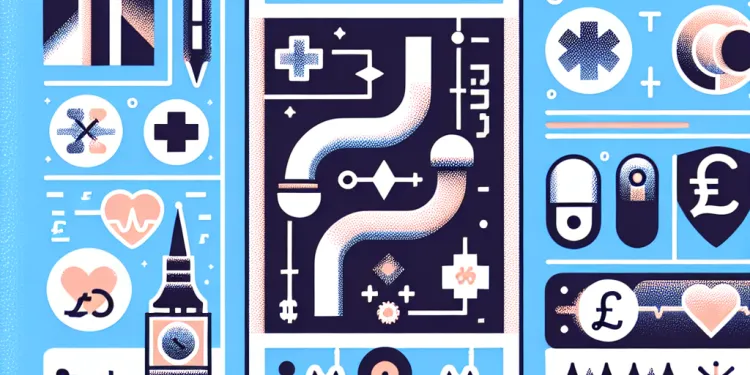
What is Pancreatic Cancer?
Relevance: 100%
-
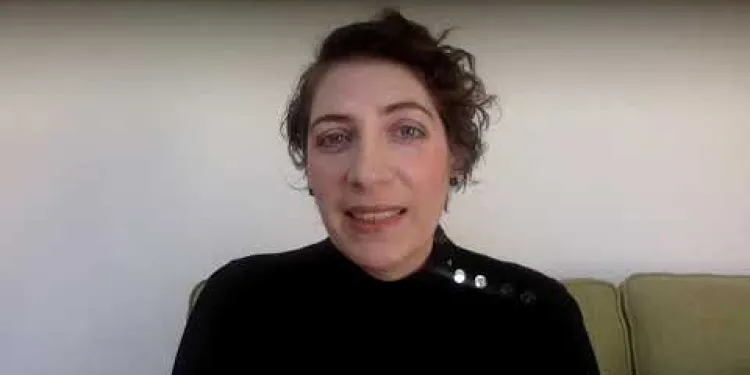
World Pancreatic Cancer Day - No Time to Wait
Relevance: 89%
-
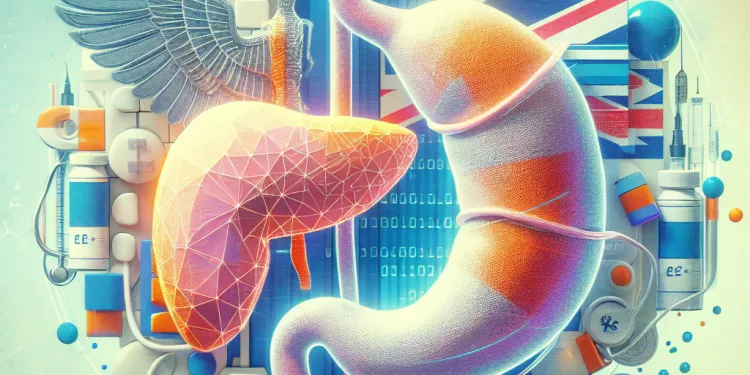
Can Ozempic lead to pancreatitis?
Relevance: 49%
-
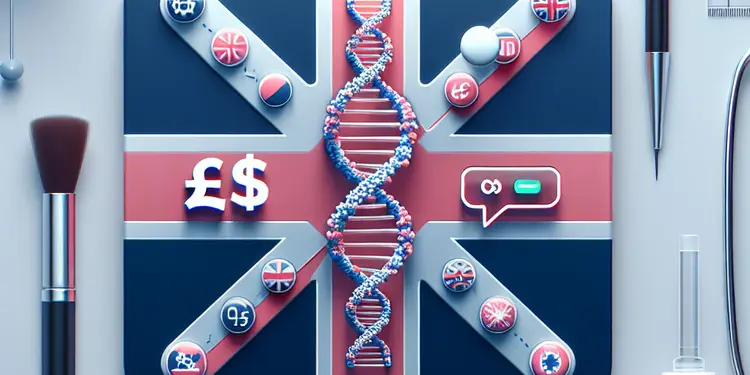
Is genetic screening available for cancer risk?
Relevance: 37%
-
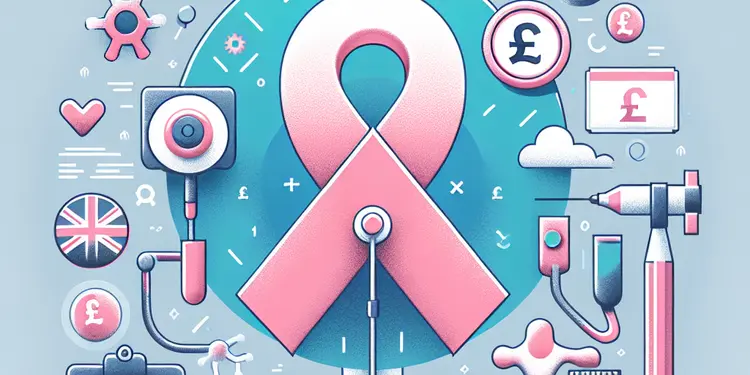
Does Paillon treatment treat all types of cancer?
Relevance: 35%
-
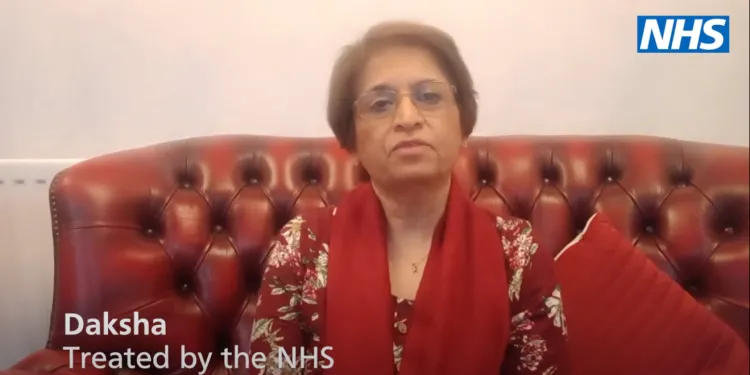
What is Cancer?
Relevance: 34%
-
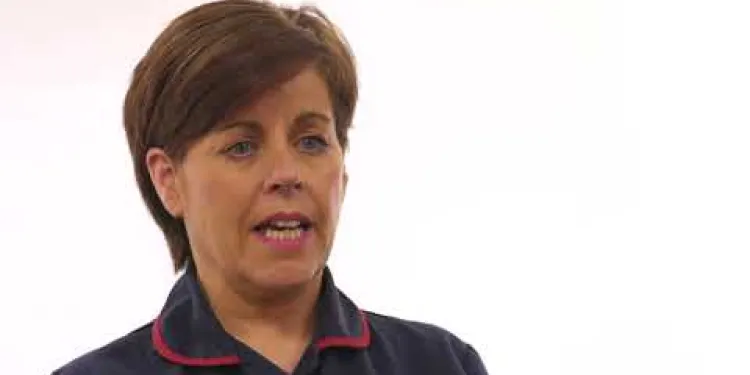
Ovarian Cancer
Relevance: 34%
-

Vaginal Cancer
Relevance: 34%
-

Endometrial Cancer
Relevance: 34%
-
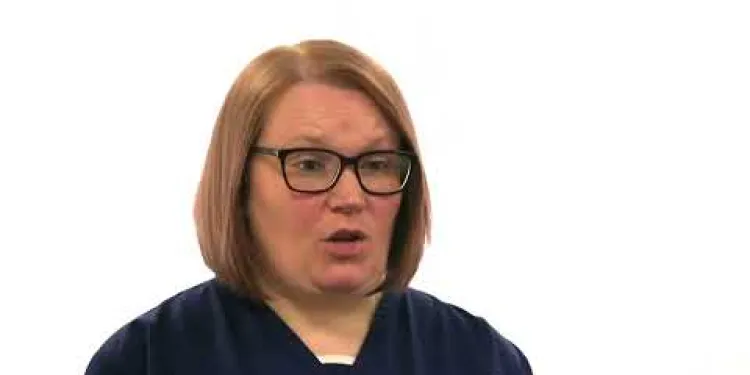
Vulval Cancer
Relevance: 34%
-

Endometrial Cancer
Relevance: 34%
-

Endometrial Cancer
Relevance: 34%
-
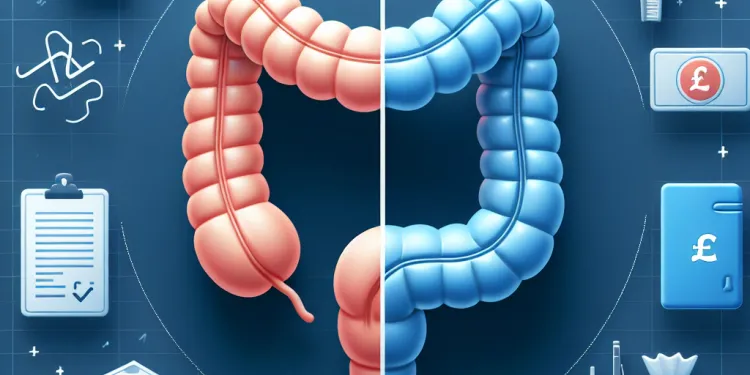
What is the difference between colon cancer and rectal cancer?
Relevance: 33%
-

What is cancer screening?
Relevance: 33%
-

What is testicular cancer?
Relevance: 33%
-
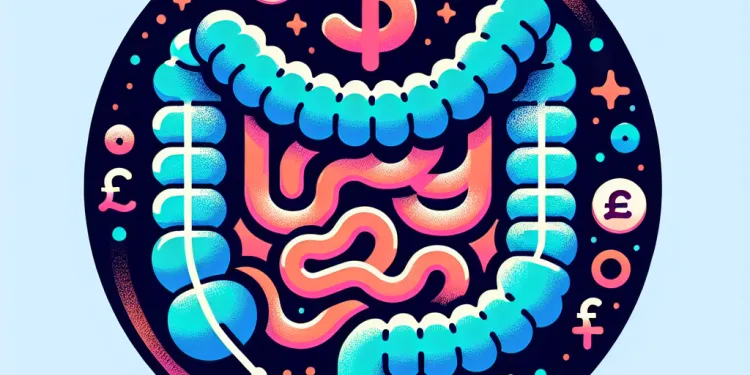
What is colorectal cancer?
Relevance: 33%
-

What is Bowel Cancer?
Relevance: 32%
-
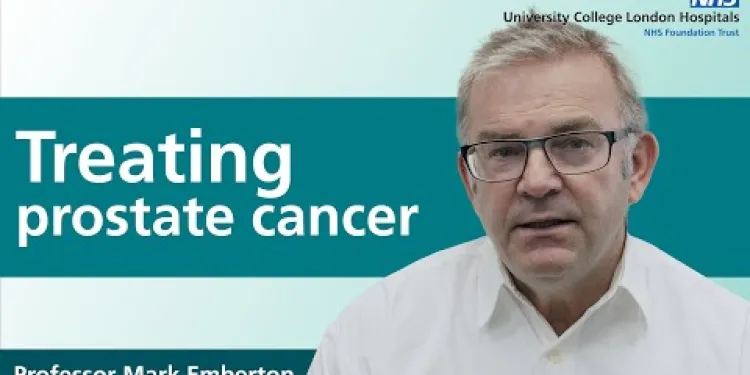
Treating prostate cancer
Relevance: 32%
-
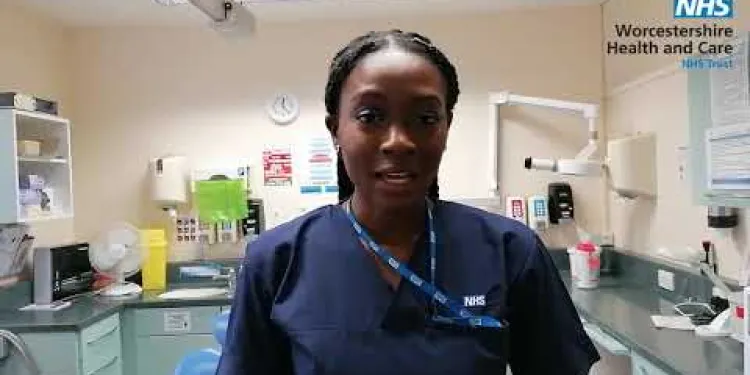
Mouth Cancer Awareness
Relevance: 32%
-

What is testicular cancer?
Relevance: 32%
-

What is Prostate Cancer?
Relevance: 32%
-

What is testicular cancer?
Relevance: 32%
-
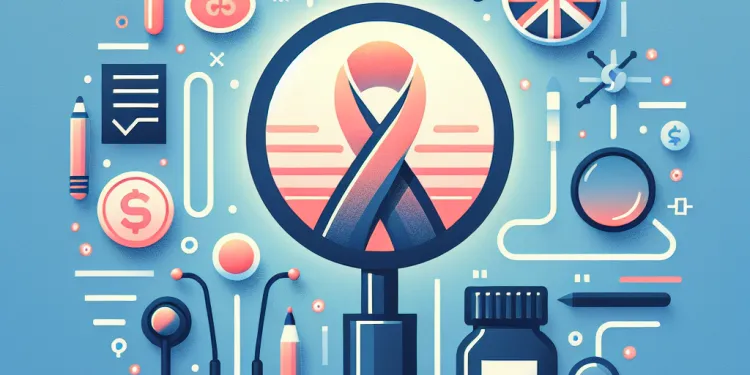
Is testicular cancer treatable?
Relevance: 32%
-
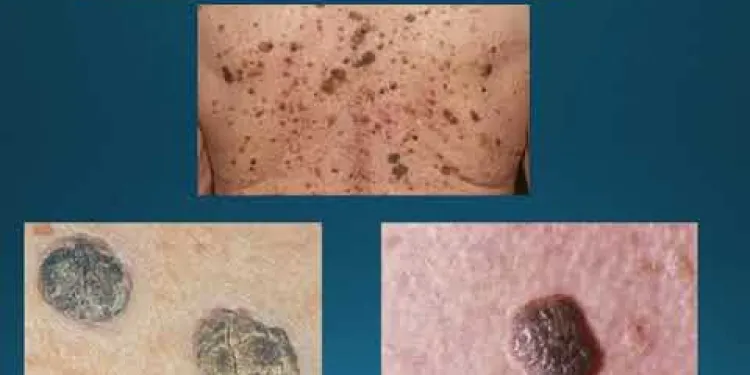
Skin cancer education
Relevance: 32%
-
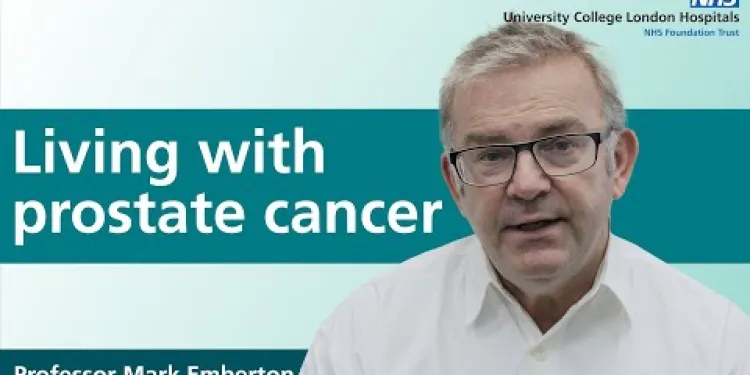
Living with prostate cancer
Relevance: 32%
-

Mouth Cancer Infomercial
Relevance: 32%
-
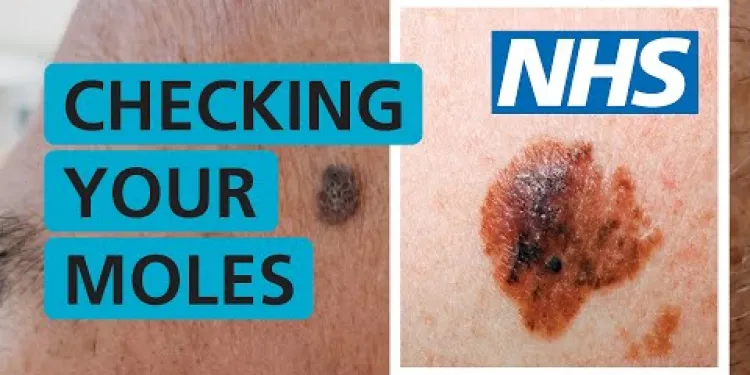
Skin Cancer - How do I check if my mole is skin cancer? | NHS
Relevance: 32%
-

Breakthrough in Cancer Treatment Offers Hope for Prostate Cancer Patients
Relevance: 32%
-
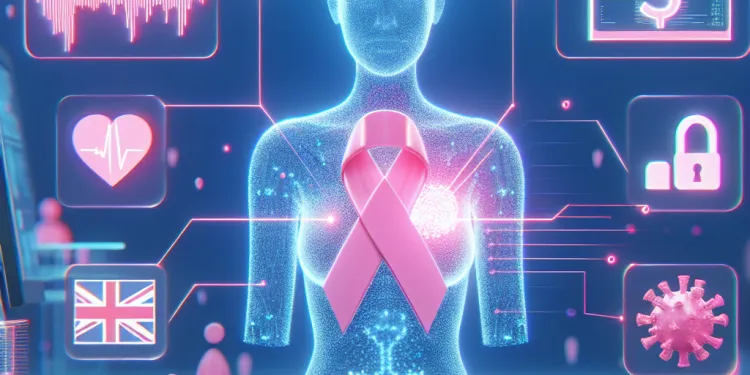
AI Breast Cancer Screening in the UK
Relevance: 32%
-

How common is testicular cancer?
Relevance: 31%
-
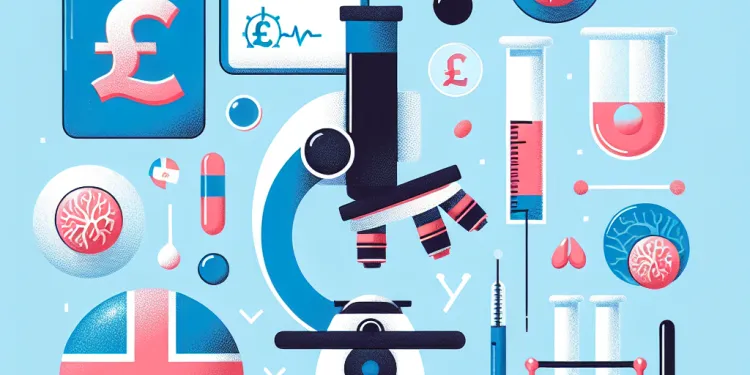
What causes testicular cancer?
Relevance: 31%
-
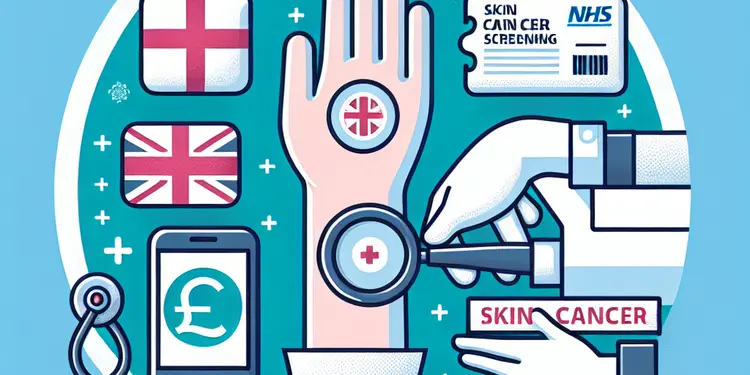
What is a skin cancer screening?
Relevance: 31%
-

Raising awareness of ovarian cancer
Relevance: 31%
-

What are the stages of testicular cancer?
Relevance: 31%
-

How is prostate cancer treated?
Relevance: 31%
-
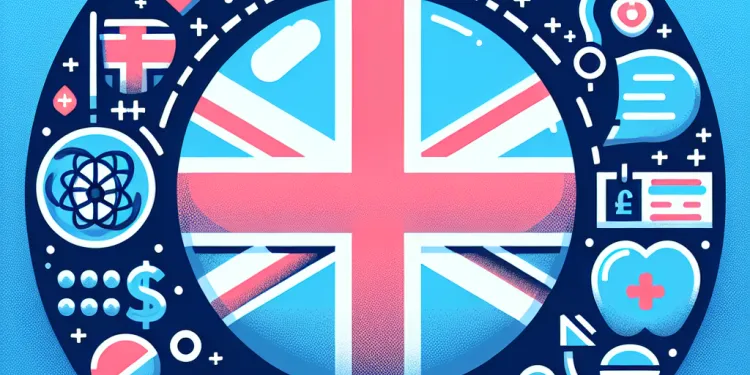
Who is at risk for testicular cancer?
Relevance: 31%
-
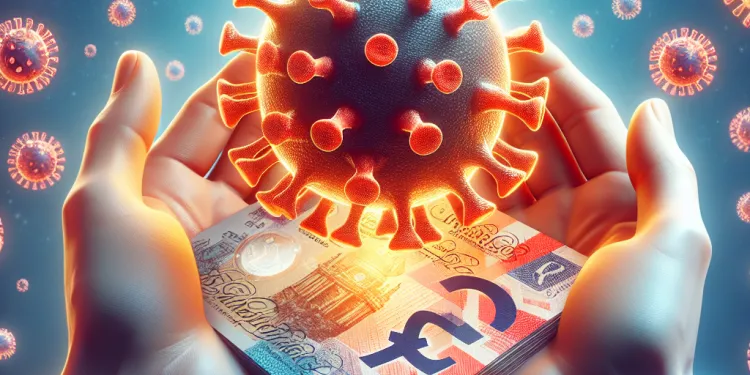
Can HPV lead to cancer?
Relevance: 31%
-
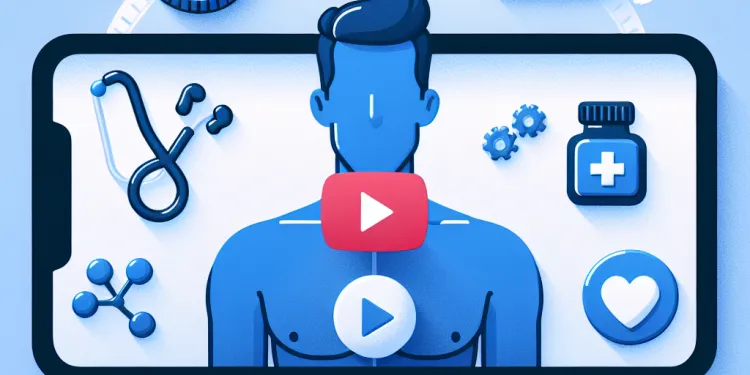
Am I more at risk of prostate cancer?
Relevance: 31%
-

Why is there a surge in bowel cancer?
Relevance: 31%
-

How to do the FIT bowel cancer screening test | Cancer Research UK
Relevance: 31%
What is Pancreatic Cancer?
Pancreatic cancer is a type of cancer that begins in the pancreas, an organ located in the abdomen. The pancreas plays a critical role in digestion and blood sugar regulation. It produces enzymes that aid digestion and hormones, such as insulin, which help control blood sugar levels. Pancreatic cancer occurs when malignant cells form in the tissues of the pancreas, and it can affect the exocrine cells (responsible for producing digestive enzymes) or the endocrine cells (which produce hormones).
Types of Pancreatic Cancer
There are two main types of pancreatic cancer: exocrine tumors and endocrine tumors. The most common type is pancreatic ductal adenocarcinoma, which arises from the exocrine cells and accounts for about 95% of cases. This form of cancer is typically aggressive and has a poor prognosis. Endocrine tumors, also known as pancreatic neuroendocrine tumors (PNETs) or islet cell tumors, are less common and tend to have a better prognosis. However, both types can be challenging to treat due to their typically late diagnosis.
Risk Factors and Symptoms
Several risk factors are associated with pancreatic cancer. These include smoking, obesity, age (most patients are over 65), family history, genetic predispositions, diabetes, and chronic pancreatitis. The symptoms of pancreatic cancer can be subtle in the early stages and may include jaundice (yellowing of the skin and eyes), abdominal or back pain, unexplained weight loss, loss of appetite, and changes in stool. Because these symptoms can be indicative of other conditions, early detection is often difficult.
Diagnosis and Treatment
Diagnosis of pancreatic cancer typically involves imaging tests such as CT scans, MRI, or endoscopic ultrasound to visualize the pancreas. A biopsy may also be performed to confirm the diagnosis. Due to its aggressive nature and challenging early detection, pancreatic cancer is often diagnosed at an advanced stage, which limits treatment options. Treatment generally involves a combination of surgery, chemotherapy, and radiation therapy. In some cases, targeted therapies or immunotherapy may be considered, depending on the type and stage of the cancer.
Prognosis and Prevention
The prognosis for pancreatic cancer is generally poor, with a five-year survival rate of less than 10%. However, early-stage diagnosis and advancements in treatment are providing hope for better outcomes. Prevention strategies include quitting smoking, maintaining a healthy weight, managing diabetes, and adhering to a balanced diet rich in fruits and vegetables. Regular medical check-ups and awareness of family medical history can also help in monitoring risk.
Understanding pancreatic cancer and its impacts can lead to increased awareness, early detection, and improved outcomes. Ongoing research continues to explore new diagnostic and treatment options, offering hope for those affected by this challenging disease.
What is Pancreatic Cancer?
Pancreatic cancer happens when bad cells grow in the pancreas. The pancreas is an organ in your belly. It helps you digest food and control your blood sugar with things called enzymes and hormones. Cancer in the pancreas can make it hard for these cells to work properly.
Types of Pancreatic Cancer
There are two main types of pancreatic cancer: exocrine tumors and endocrine tumors. Most people with pancreatic cancer have exocrine tumors. This type is called pancreatic ductal adenocarcinoma. It is serious and hard to treat. Endocrine tumors are less common and affect the hormone-producing cells. Doctors may find these cancers late, which makes treatment difficult.
Risk Factors and Symptoms
Some things make pancreatic cancer more likely. These include smoking, being overweight, being older (most people are over 65), having family members with it, certain genes, diabetes, and long-term pancreas problems. Signs of pancreatic cancer might be yellow skin or eyes, stomach or back pain, losing weight without trying, not feeling hungry, and changes in poop. These signs can look like other illnesses, so finding the cancer early is hard.
Diagnosis and Treatment
Doctors use pictures like CT scans, MRI, or special ultrasound tests to see the pancreas. They might also take a small piece of it, called a biopsy, to check for cancer. Because it’s often found late, treatment is tough. Options include surgery, medicine called chemotherapy, and strong X-rays called radiation. Some people might also try new treatments, depending on the cancer.
Prognosis and Prevention
The outlook for pancreatic cancer is often not good. Very few people live more than five years after finding out they have it. If doctors find it early, people might do better. To lower the chance of getting it, stop smoking, keep a healthy weight, keep control of diabetes, and eat lots of fruits and vegetables. Check-ups with the doctor and knowing your family health history are useful, too.
Learning about pancreatic cancer can help people notice it sooner and get better results. New research is looking for better ways to find and treat this tough cancer. There is hope for improving the lives of people with pancreatic cancer.
Frequently Asked Questions
What is pancreatic cancer?
Pancreatic cancer is a type of cancer that begins in the tissues of the pancreas, an organ in your abdomen that lies behind the lower part of your stomach.
What are the symptoms of pancreatic cancer?
Symptoms may include abdominal pain, jaundice, weight loss, loss of appetite, and depression. However, early stages might not present noticeable symptoms.
How is pancreatic cancer diagnosed?
Diagnosis typically involves imaging tests like CT scans, MRI, or ultrasound, and may include a biopsy to examine tissue samples.
What are the risk factors for pancreatic cancer?
Risk factors include smoking, obesity, chronic pancreatitis, family history, diabetes, and certain genetic syndromes.
Is pancreatic cancer hereditary?
While most cases are not hereditary, about 10% of pancreatic cancers can be linked to inherited genetic mutations.
What are the treatment options for pancreatic cancer?
Treatment may involve surgery, chemotherapy, radiation therapy, targeted therapy, or a combination of these methods.
Can pancreatic cancer be detected early?
Early detection is challenging due to the location of the pancreas and the often subtle early symptoms, but certain high-risk individuals may undergo screening.
What is the survival rate for pancreatic cancer?
Survival rates for pancreatic cancer vary greatly depending on the stage at diagnosis but tend to be lower than for many other types of cancer.
What is the function of the pancreas?
The pancreas produces enzymes for digestion and hormones, such as insulin, that help regulate blood sugar levels.
Are there different types of pancreatic cancer?
Yes, the most common type is pancreatic adenocarcinoma, but there are also rarer types such as neuroendocrine tumors.
What are the stages of pancreatic cancer?
Stages range from I to IV, with I being confined to the pancreas and IV indicating spread to other parts of the body.
How can I reduce my risk of developing pancreatic cancer?
Reducing risk factors such as quitting smoking, maintaining a healthy weight, and managing diabetes can help lower the risk.
What role does diet play in pancreatic cancer?
A healthy diet rich in fruits and vegetables and low in processed meats may help reduce the risk.
Can pancreatic cancer be cured?
When detected early and treated aggressively, some patients can be cured, but most cases are diagnosed at an advanced stage where cure is unlikely.
What is the Whipple procedure?
The Whipple procedure is a complex surgery to remove the head of the pancreas, part of the small intestine, the gallbladder, and bile duct, often used to treat pancreatic cancer.
What is the impact of pancreatic cancer on quality of life?
Pancreatic cancer and its treatments can significantly affect a person's quality of life due to symptoms, side effects, and emotional stress.
How important is genetic testing for pancreatic cancer?
Genetic testing can help identify inherited cancer risks, which is important for family members and may influence treatment options.
What advancements are being made in pancreatic cancer treatment?
Research is ongoing, with advancements in targeted therapies, immunotherapy, and genetic profiling offering new hope for better treatments.
Is there ongoing research about pancreatic cancer?
Yes, there is extensive research aimed at understanding the biology of pancreatic cancer better and developing more effective treatments.
What support options are available for pancreatic cancer patients?
Support options include counseling, support groups, nutritional advice, palliative care, and resources from cancer organizations.
What is pancreatic cancer?
Pancreatic cancer is when bad cells grow in the pancreas. The pancreas is an organ in your belly that helps with digestion and controls sugar in the blood. When these bad cells grow, they can make you very sick.
If you want to know more or need help to understand, ask a doctor or a nurse. You can also use picture books or videos to learn. They can make the information easier to understand.
Pancreatic cancer is a sickness. It starts in the pancreas. The pancreas is a part of your body. It is in your belly, behind your stomach.
What signs show pancreatic cancer?
Here are some signs that might show someone has pancreatic cancer:
- Bad stomach pain that doesn't go away.
- Skin or eyes turning yellow. This is called jaundice.
- Losing weight without trying.
- Feeling very tired all the time.
- Upset tummy and not feeling hungry.
If you see these signs, it’s important to tell a doctor.
Tips to help understand:
- Ask someone you trust to explain these signs to you.
- Use pictures or simple videos to learn more.
- Write down any questions you have.
Some signs you might feel are belly pain, yellow skin, losing weight, not feeling hungry, and feeling sad. But at first, you might not notice any of these.
If you find it hard to understand, you could ask someone to help you read it. You can also use tools that read the words out loud.
How do doctors find out if someone has pancreatic cancer?
Doctors use different tests to check if someone has pancreatic cancer. These tests help them to see inside the body and find out what's happening. Here are some common tools and tests used:
- Scans: Doctors use special machines like CT scans or MRIs to take pictures inside the body.
- Blood Tests: A blood test can help find signs of cancer in the body.
- Biopsy: Doctors might take a tiny piece of the pancreas to check it for cancer cells.
- Ultrasound: This test uses sound waves to create pictures of the pancreas.
If you're worried or need more information, ask a doctor or a nurse. They can help explain and support you.
Doctors find out what is wrong using special pictures of the inside of your body. They might use a CT scan, an MRI, or an ultrasound. They might also look at a small piece of your body, called a biopsy, to check it carefully.
If you need help understanding, you can ask someone to explain it to you. You can also use pictures or videos online to learn more.
What makes it more likely to get pancreatic cancer?
Here are some things that can make it more likely to get pancreatic cancer:
- Smoking cigarettes
- Being very overweight
- Getting older
- Having family members with pancreatic cancer
- Problems with the pancreas, like diabetes
- Drinking too much alcohol
If reading is hard, try using pictures or videos to help understand. You can also ask someone you trust to read with you.
Things that can make you more likely to get sick are smoking, being very overweight, having ongoing pancreas problems, having a family who got sick too, having diabetes, and some rare health conditions.
If this is confusing, talking to a doctor or using health apps can help you understand more.
Can You Get Pancreatic Cancer from Your Family?
Most of the time, pancreatic cancer is not passed down from parents to children. But about 10 out of 100 pancreatic cancers happen because of changes in genes that families can share.
If you or someone you know has a hard time reading, try using tools like audiobooks or picture stories. Also, looking at information one small piece at a time can help.
What can doctors do to help if you have pancreatic cancer?
Treatment can include different ways to help you get better. This might be: surgery (an operation), chemotherapy (special medicine), radiation therapy (using beams of energy), or targeted therapy (medicine that goes directly to the cancer). Sometimes, doctors use a mix of these treatments.
Can we find pancreatic cancer early?
Pancreatic cancer starts in a part of the body called the pancreas. Finding pancreatic cancer early is hard. This is because often there are no clear signs or symptoms.
Doctors use special tests to try and find cancer early. One test is a scan, like an x-ray, which looks inside the body. Another test checks the blood for unusual signs.
It's important to see a doctor if you feel sick or have pain often. Doctors and nurses can help find out what is wrong. Always ask for help if you are worried about your health.
Using pictures and simple words can help understand this better. You can also ask someone to explain things to you. Don't be afraid to ask questions until you understand.
Finding problems with the pancreas early can be hard because the pancreas is deep inside the body. The early signs can be very small and easy to miss. But some people who are at a higher risk might get special tests to check for issues.
How many people live after having pancreatic cancer?
Pancreatic cancer is a sickness. It starts in a part of the body called the pancreas. The survival rate tells us how many people live for a while after they find out they have this sickness.
If 100 people have pancreatic cancer, the survival rate is how many of those people are still alive after a set time, like 1 year or 5 years. This helps us understand how serious the sickness can be.
Doctors can explain more and help people understand their own situation. It's good to talk to them.
Some people use simple words, drawings, or ask family to help them understand better.
The chance of living after someone finds pancreatic cancer changes a lot. It depends on how much the cancer has spread. Usually, these chances are lower than for many other types of cancer.
Here are some ways to help understand this better:
- Ask a Doctor: Talk to your doctor to learn more about your specific situation.
- Use Simple Language: Ask someone to explain the medical words in a simple way.
- Write It Down: Write down what you learn to help remember it.
What does the pancreas do?
The pancreas helps your body. It makes juices that go into your tummy to help break down food. It also makes insulin to keep your sugar levels just right.
To understand better, you can watch a video or look at a picture of the pancreas. You can also ask a friend, parent, or teacher for help.
The pancreas is a part of your body that helps with food and sugar. It makes special juices to break down food. It also makes something called insulin to keep the sugar in your blood at the right level.
Are there different types of pancreatic cancer?
Yes, there are different kinds of pancreatic cancer.
The main type is called pancreatic adenocarcinoma. It starts in the cells that make juices to help digest food.
There are also rare types of pancreatic cancer. These can start in hormone-making cells and are called neuroendocrine tumors.
If you need help understanding or remembering this, you can:
- Use pictures or diagrams to explain ideas.
- Ask someone to read it with you.
- Take notes or use highlighting for important points.
Yes, the most common type of cancer in the pancreas is called pancreatic adenocarcinoma. There are also other rare types called neuroendocrine tumors.
What happens with pancreatic cancer?
1. Doctors find out how big the cancer is and if it has spread.
2. They do tests to know how serious the cancer is.
3. The tests help doctors decide on the best treatment.
Support: Use picture charts or ask someone to explain with simple words.
Doctors talk about stages from 1 to 4. Stage 1 means the cancer is only in the pancreas. Stage 4 means the cancer has spread to other parts of the body.
How can I lower my chance of getting pancreatic cancer?
To be more healthy, try these things:
- Stop smoking. It is not good for you.
- Keep a healthy weight. Eat good food and stay active.
- If you have diabetes, go to the doctor and take your medicine.
If you do these things, you can stay healthy and feel better.
How does food affect pancreatic cancer?
Food can change how the pancreas works.
- Healthy foods are good for the pancreas.
- Too much junk food can hurt the pancreas.
Eating healthy food is important. Try to eat lots of fruits and vegetables. It is better to eat less food like sausages and bacon. This can help you stay healthy.
Can we get rid of pancreatic cancer?
Doctors are working hard to find ways to help people with pancreatic cancer. Sometimes, if found early, it can be treated. But it's tough.
It is important to see a doctor if you feel unwell. They can help find the best treatment for you.
Using pictures or videos can help understand what doctors say. Writing down questions before seeing the doctor can also be useful.
If we find the problem early and fix it quickly, some people can get better. But most of the time, we find it too late and can't make it better.
What is the Whipple procedure?
The Whipple procedure is a big surgery that helps people with some kinds of cancer. It takes out part of the pancreas and other nearby things.
This surgery is named after a doctor called Whipple. Doctors do this to try and stop cancer from spreading.
If you are talking about the Whipple procedure, you might want to use pictures or videos to help explain it. A doctor or nurse can also explain it in a simple way.
The Whipple operation is a big surgery. Doctors take out the head of the pancreas, part of the small intestine, the gallbladder, and the bile duct. This operation helps people with pancreatic cancer.
How does pancreatic cancer affect how people live?
Pancreatic cancer and its treatments can make a person feel very sick and upset. It can change how they feel every day because of the illness and the medicine they take. It can also make them feel worried or sad.
How important is genetic testing for pancreatic cancer?
Genetic testing helps doctors check for changes in genes. This is important to see if someone might get sick, like with pancreatic cancer.
Doctors look at your family's health to see if you should get a genetic test. This can help find cancer early when it's easier to treat.
Talking to a doctor or a nurse can help you understand if you need this test. They can explain what the test shows.
Using tools like pictures or videos can make learning about genetic testing easier and more fun.
Genetic testing looks at your genes. It can show if you might get certain types of cancer. This is important for your family too. It can also help doctors choose the best treatment for you.
If you find reading hard, try using tools like screen readers. They can read the text out loud for you.
What new things are helping to treat pancreatic cancer?
Doctors and scientists are finding new ways to help people with pancreatic cancer.
These new ways are called treatments.
They are working hard to make these treatments better.
If you want to know more, you can:
- Talk to your doctor.
- Use simple online resources.
- Ask someone you trust to help you read more about it.
Scientists are still working hard to find new ways to treat illnesses. They are making progress in three main areas:
1. Special medicines that go exactly where they are needed in the body.
2. Using the body's own defenses to fight illness, which is called immunotherapy.
3. Looking at genes to understand the best treatment for each person.
These new ideas give us hope for finding better ways to help people get better.
It might help to read this with a friend or family member. You could also use a text-to-speech tool that reads the words out loud to you.
Are scientists studying pancreatic cancer right now?
Yes, scientists are working hard to learn more about pancreatic cancer. They want to find better ways to help people who have it.
There are tools that can help you understand more, like pictures or videos. You can also ask someone you trust to explain it to you.
Yes, scientists are studying a lot to learn more about how pancreatic cancer works and to find better ways to treat it.
What help can people with pancreatic cancer get?
Here are some ways to get help if you have pancreatic cancer:
- Doctor or Nurse: They can give you advice and treatment.
- Support Groups: Meet other people with the same illness.
- Counselor: Talk about how you feel.
- Nutritionist: Learn about healthy eating.
It can also help to:
- Write down questions for your doctor.
- Ask a friend or family member to come with you to appointments.
- Use a notebook to keep track of your treatment and feelings.
You can get help in different ways, such as talking to someone about your feelings, joining groups with people who understand, getting advice on eating well, care to make you comfortable, and finding help from groups that know about cancer.
Useful Links
This website offers general information and is not a substitute for professional advice.
Always seek guidance from qualified professionals.
If you have any medical concerns or need urgent help, contact a healthcare professional or emergency services immediately.
Some of this content was generated with AI assistance. We’ve done our best to keep it accurate, helpful, and human-friendly.
- Ergsy carfully checks the information in the videos we provide here.
- Videos shown by Youtube after a video has completed, have NOT been reviewed by ERGSY.
- To view, click the arrow in centre of video.
- Most of the videos you find here will have subtitles and/or closed captions available.
- You may need to turn these on, and choose your preferred language.
- Go to the video you'd like to watch.
- If closed captions (CC) are available, settings will be visible on the bottom right of the video player.
- To turn on Captions, click settings .
- To turn off Captions, click settings again.
More Items From Ergsy search
-

What is Pancreatic Cancer?
Relevance: 100%
-

World Pancreatic Cancer Day - No Time to Wait
Relevance: 89%
-

Can Ozempic lead to pancreatitis?
Relevance: 49%
-

Is genetic screening available for cancer risk?
Relevance: 37%
-

Does Paillon treatment treat all types of cancer?
Relevance: 35%
-

What is Cancer?
Relevance: 34%
-

Ovarian Cancer
Relevance: 34%
-

Vaginal Cancer
Relevance: 34%
-

Endometrial Cancer
Relevance: 34%
-

Vulval Cancer
Relevance: 34%
-

Endometrial Cancer
Relevance: 34%
-

Endometrial Cancer
Relevance: 34%
-

What is the difference between colon cancer and rectal cancer?
Relevance: 33%
-

What is cancer screening?
Relevance: 33%
-

What is testicular cancer?
Relevance: 33%
-

What is colorectal cancer?
Relevance: 33%
-

What is Bowel Cancer?
Relevance: 32%
-

Treating prostate cancer
Relevance: 32%
-

Mouth Cancer Awareness
Relevance: 32%
-

What is testicular cancer?
Relevance: 32%
-

What is Prostate Cancer?
Relevance: 32%
-

What is testicular cancer?
Relevance: 32%
-

Is testicular cancer treatable?
Relevance: 32%
-

Skin cancer education
Relevance: 32%
-

Living with prostate cancer
Relevance: 32%
-

Mouth Cancer Infomercial
Relevance: 32%
-

Skin Cancer - How do I check if my mole is skin cancer? | NHS
Relevance: 32%
-

Breakthrough in Cancer Treatment Offers Hope for Prostate Cancer Patients
Relevance: 32%
-

AI Breast Cancer Screening in the UK
Relevance: 32%
-

How common is testicular cancer?
Relevance: 31%
-

What causes testicular cancer?
Relevance: 31%
-

What is a skin cancer screening?
Relevance: 31%
-

Raising awareness of ovarian cancer
Relevance: 31%
-

What are the stages of testicular cancer?
Relevance: 31%
-

How is prostate cancer treated?
Relevance: 31%
-

Who is at risk for testicular cancer?
Relevance: 31%
-

Can HPV lead to cancer?
Relevance: 31%
-

Am I more at risk of prostate cancer?
Relevance: 31%
-

Why is there a surge in bowel cancer?
Relevance: 31%
-

How to do the FIT bowel cancer screening test | Cancer Research UK
Relevance: 31%


